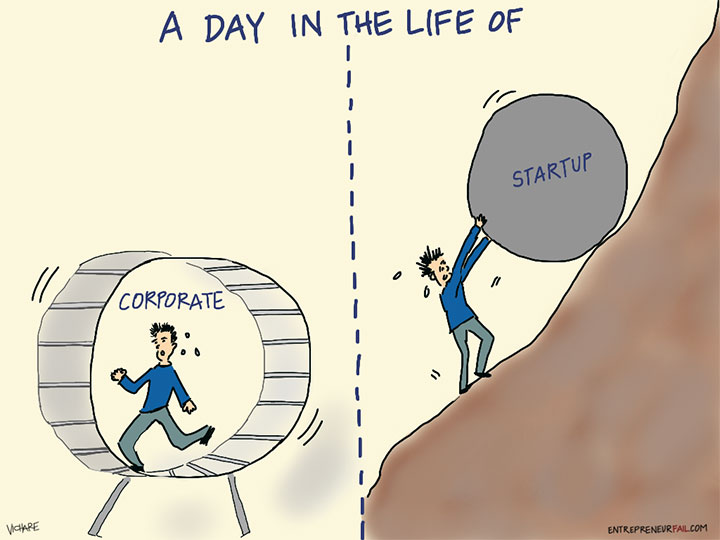After all the late nights and pressure-filled days, your business is finally up and running. Congratulations, you’ve made a leap that many South Africans aspire to. Your First Year as a Business Owner is complete. And while it may not all be smooth sailing from this point – recent research by Xero research has highlighted that one-third of small business owners find the first 12 months harder than they expected – understanding the challenges ahead can help you to plan, prepare and make the most of your business.
Small business owners are some of the bravest people I know. They take big risks to see their passion come to life. And, for many, it’s a hard road in those early years. The days are long, the work is difficult, and the majority of small business owners who can’t afford to pay themselves a wage in their first year, are probably just scraping by. I remember when I started my first business. During the first 18 months of spending hours knocking on doors, making sales calls and trying to build a reliable brand, I was lucky if I could manage to pay myself R5,000 per month. Most of these months saw me taking no salary whatsoever.
Read More: Starting a Business? 8 Traits of Entrepreneurs
However, I truly believe there has never been a more exciting time to be a small business owner. Even amid the doom and gloom prophesies expressed by countless people and the media alike, small business owners have more access to tools, data and support than ever before, saving time and helping set themselves up for success. It’s vital in those early days to get the right systems and support in place. Here are some thoughts on what I personally learned and what I know most of my clients over the past two decades have learned:
- Biting off more than you can chew: Perhaps one of the hardest things for new business owners is knowing when to get help. In fact, more than half of the small business owners I have met said the biggest mistake they made in their first year was trying to do everything themselves. You may be small and new, so doing everything – from managing the financials to drumming up business through marketing – feels like the natural way to save costs. But don’t confuse being busy with being productive. These days, apps and digital connectivity help small businesses to thrive by streamlining operations, supporting growth and customer service, and reducing the hours spent on back office and administration tasks.
- Playing to your strengths: Rather than heaping too much on your plate, increase efficiency by playing to your strengths and then getting support where you need it. One example is getting help to manage your finances. If doing the accounts isn’t your forte, outsource it or implement the necessary support systems to make it easier. Being paid on time and maintaining a positive cash flow are two of the biggest challenges for small businesses, and the reason many fail. Whatever challenges you face, don’t feel as if you have to go it alone. Seek out an advisor, or talk to someone you trust, and take time out to upskill yourself. There’s also a wealth of resources and information online.
- Don’t forget why you’re doing this: Starting your own business requires a huge investment, not just in terms of money. Most of the small business owners I have met took one to two years from first having the idea to launch, while at least 60% spent more than 50 hours a week on their business in the first year. That’s a huge time commitment, particularly if you’re making little to no wage. It’s not an easy situation, so when things get tough, remember why you set out on this journey in the first place. For many people, the biggest motivation for starting their own business is family – wanting to create a better life, or to have greater flexibility about when and how they work … creating time! Understanding your ‘why’ – or identifying what motivates you – can be a powerful tool when you’re facing unexpected challenges. Remember, nothing worth having is ever easy, and starting a business – having something that’s yours and building it up with your own efforts – might just be one of the most challenging but rewarding things you ever do.
- Stick with your interests: You will be much more successful if you do what you love and, play on your strengths. If you know very little about the retail industry, you should probably stay away from a business within the retail sector.
- Don’t dismiss the idea of a Business Plan: Yes, a business plan takes time, but it will be one of your best time investments. It allows you to create goals and a vision for your business. You will be able to see what kind of business you want to build and know how you want to build it. It allows you to clearly see all your goals and help you determine how you’re going to achieve them. It also allows you to troubleshoot what may come your way down the line. If you do not know how to effectively market your business, do your research.







